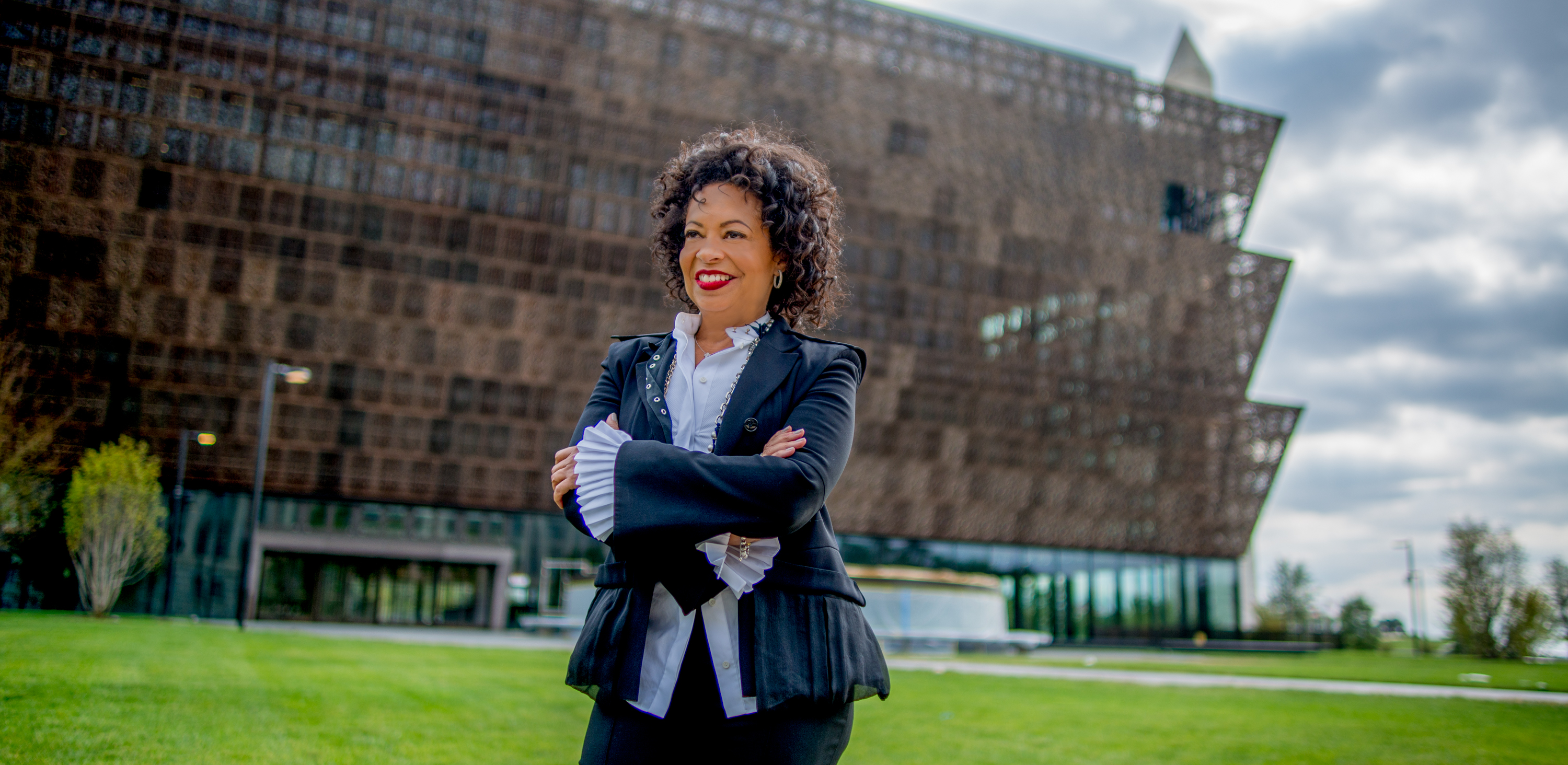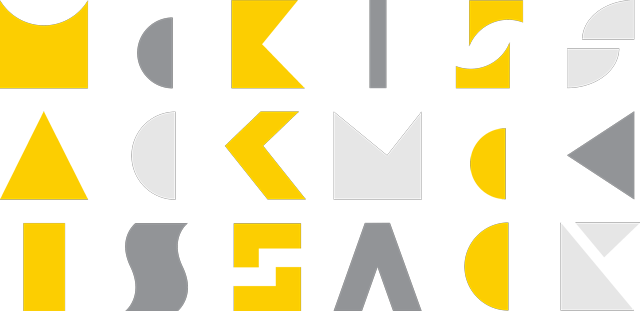News
News
Four women leaders pull back the cover on the development industry's challenges with Covid, diversity

You’re a woman. Or a person of color. Or both. In an industry — development and construction, engines of the local economy — in which the two are painfully underrepresented. In a year dominated by a pandemic and demands for racial and social justice.
How do you guide your company, your industry,through the chaos of 2020 — and usher it forward?
The Washington Business Journal recently invited four women leaders to discuss how they are doing just that. The recorded conversation first appeared on our website on July 23. Below is a transcript of the full conversation, only edited for clarity, of what our panelists told Editor-in-Chief Vandana Sinha, who moderated the discussion.
Our panelists:
Lynn Stith Bennett, executive vice president, Coakley & Williams Construction
Lisa Mallory, CEO, D.C. Building Industry Association
Deryl McKissack, president and CEO, McKissack & McKissack
Maria Thompson, executive vice president of construction, Hoffman& Associates
What has been the biggest hit to the local real estate sector?
Lisa Mallory: Well, there was a lot of uncertainty. So just really continuing to keep the engine going really and moving forward — that has been a real challenge on a day-to-day basis. Because on each site if you find one incidence of Covid-19, it just really causes us to close down. And then as we discover more and more about the disease and the precautions that we need to take and the CDC guidelines and everything else, we need to make sure that our construction sites are safe and that our buildings are safe as we try to bring people back in. So, it's a very complicated set of issues that we need to stay on. Our recovery is going to take a long, long time, but we're all in this together so, we're all going to have to work this through in a very thoughtful and deliberate way. But we will do that, and we will come back.
What are you advising the Bowser administration and the mayor herself in terms of reopening as it pertains to real estate?
Mallory: Well, I participated in Reopen D.C. We looked at best practices throughout the country, throughout the world really — about UV lights, about really taking thermometer checks, about PPE, about every aspect of what you do in buildings, shifts about people. I get calls every day, "Should I bring my people back?” We know that public transportation is a challenge, bringing people back in. Spacing is a problem in our work environments; we put everybody in small spaces. We're working on our climate regulations that allow us to put people in small spaces and now that's a challenge. So, we have to really go and look at our structures, at our designs and retrofit a lot of those things.We're going back to the drawing board on a lot of our buildings and designs.
What are specific things you’re changing in your developments to get through this intact?
Maria Thompson: I'll start with construction. We were able to implement some onsite medical professionals who did all the temperature screening. I kept daily logs of all the workers, making sure that everyone was cleared. The contractors instituted a bagging system so that they could very quickly recognize those who had been through the screening or not. And then social distancing, just trying to get the workforce trained very quickly on how to interact with each other and still be productive. I think we here at The Wharf were very, very lucky because we were concluding the excavation and starting with structural concrete. So we were still pretty well open air and that didn't have confined spaces. So it was a little bit easier to introduce some of those things. But I know my counterparts across the region struggled some as they were in closed and working very closely together in residential and hospitality projects.
How about the design now?
Thompson: For each product type, we started to reach out to the design teams to really focus on what are some things we need to introduce to improve social distancing. For our company, we've always focused on creating outdoor spaces where people can be social, but it's still the outdoors. The Wharf is the primary example, but we have a project in West Falls Church also that has a common area that is the central gathering point of all of the buildings. Now we're looking at ways to expand that and create more living spaces that are open with work from home flexibility. That's been a big thing.
What has leadership been like in this time for you?
Deryl McKissack: That first week, we had no idea. You can imagine that there was a lot of anxiety, a lot of fear and doubt around. What is this going to come to? And how long are we going to be there? I started Monday one way, didn't sleep much. By Friday, I slept through the weekend for the first time, because I felt that we had really fallen into our new normal and everything that I was worried about was really taken care of. We learned in our company that trust changes everything. And we were able to build that trust by talking to everybody every single day. And that's across the country, trying to work out the issues for everybody on these calls. And we've built up a bond in those calls we still do today. Every single day of the week, our leadership team gets together. We have these calls to work out now how to bring people back.
How has this affected your own companies and reentry?
McKissack: In the office, right before Covid, we just purchased all this great furniture for people to sit together and be close in intimate settings.And it was all coming from Europe. It's not even here. And now we're talking about how can we put plexiglass so when someone is sitting in their booth, they don't have to keep their mask on all day long.
Lynn Stith Bennett: When we went out on March 13,we were in the process of doing a two-floor renovation to our space. So, we were creating collaborative spaces and lounges and the big multipurpose room. We’ve just completed all that renovation and we're in the same place — how do you begin to use that space as it was intended? We feel like our business is extremely collaborative, our pre-con teams are sharing information with our apps teams.
Lynn, how are your job sites different today and going forward,compared with before?
Bennett: One of our projects, we've got 300 people on the job site and we did the temperature checking and those types of things. But it also came down to that contact tracing. How do you know where people have worked? It came down to the fine detail of assigning temporary toilet facilities — who gets to use different ones? It got very complex and constantly communicating those protocols on the job sites and our safety teams really being diligent and out there. And the cleaning and having disinfecting and all of those protocols. But it was also an opportunity.
What do you mean?
Bennett: We reached out to local businesses in the community and we'repurchasing 300 lunches every day from small local businesses within the community. They come at different times and then they're staged and we can distribute those and not have everybody coming all at the same time. So that felt good because it was a way to give back to our community while still doing that essential work and keeping people safe in the meantime. July 3 was a holiday for us, we shut down all of our sites and let everybody have a long weekend with their families. On that day, we didn't want to impact that business. So, the business that had the lunches that day took them around to police stations, hospitals, fire departments and other things like that.
So, what will it take for this industry and region to really recover?
Mallory: Based on the levels of unemployment that we have in this city,there are a lot of tenants that are not able to play their rent, the vacancy rates are going up. So, we're going to have a lot of empty storefronts, we're going to have a lot going out of business. The investor confidence here is going to decline, and we're seeing that already. So, we're seeing a decrease in permits, though my understanding is that it's not as significant as they've seen in Maryland and Virginia. But we need to make sure that we rebound fairly quickly. We saw the [D.C.] Council passed this legislation that prohibits some people from getting evicted. There is a pandemic and we have a crisis, but you also have to keep in mind that our landlords and the banks need the money as well. So, the economy, it's circular, so there are some significant challenges that we're going to face.
What have you been doing around those challenges?
Mallory: We've been talking to the CFO in D.C. around these assessments that are very high. And if we see these vacancy rates, they're going to be some challenges. If we don't make some adjustments, we are going to see a significant decline in investments, in building in the city. We need to be smart about this and make the right investments at the right time and not continue to tax this industry as we have in the past. And I mean tax in every sense of the word, in terms of burdens and in terms of increased taxes. We need to work together and all lead and not operate in silos. This is not the time for everybody to throw their pet project in there. This is the time for us all to work together.
How do real estate companies navigate those abridged municipal budgets and potential increased taxes to help drive more revenue?
McKissack: My question was, where does the investment come from? Because clearly there has to be some infusion of cash somewhere to fix this. I just don't feel like business is ever going to go back to normal until we have a vaccine and it's been out in the marketplace for a long time, because no one is going to say, "I'll be first." You know what I mean? They want to let it marinate and then take the vaccine. So, I think we have just a long haul ahead of us and we can't turn to the government for any type of relief financially, not the local governments, because they're getting hit on taxes.
What are your tenants saying and seeing, Maria?
Thompson: I think it's pretty much the same. I think from all conversations is that the tenants are struggling across the market. Because we have so much outdoor open space, we were able to very quickly adapt to outdoor dining for the retail tenants in expanding their spaces. But I think for the residential tenants, a lot of them are in need of relief.
How about on construction projects and demand going forward?
Bennett: Maybe I have a little bit more optimistic view just because construction tends to be the lagging indicator. We came into 2020 with record highs on our backlog and then Covid happened and that's changed some of that.Our pipeline is full — we see a lot of activity, we're working with a lot of developers and owners doing pricing and pre-con but what we're not seeing is awards. So, projects aren't being canceled, but it's like things are paused.Everybody's waiting to see what the outcome is going to be. We're optimistic that's going to happen as more of a check than a flat line. And, we're hopeful that just from talking with the developers that we are working with and the private owners, that there is some optimism out there that these projects are going to move forward. And we hope that's going to be fall.
McKissack: So, Lynn, I would agree with you on that, because in January and February, we probably responded to just four proposals. But during Covid, since March through May, we put in 25 proposals. A client just said, "While we're sitting here, we might as well figure out what we want to do." But whenever it is ready, I think that it's going to be a flood. It has not calmed down for us in the design and construction industry at all. We're still having difficulty finding people and filling positions and all of that.
What would help this situation?
McKissack: One big thing that can help the country is if we get a real infrastructure package passed that will help the country as a whole in terms of moving this money around and getting people busy. Even though we're super busy,I am concerned about six months from now and a year from now, when jobs are winding down. Are there new jobs that are going to come online?
Let’s talk about the conversation around racial justice and equity. We know the real estate and construction industry are very low on representation of women and people of color. What needs to happen to change that?
McKissack: Well, I think it's ideology. People don't even know it's so ingrained because it's been passed down for so many generations that they have this bias — we all have bias. But there is definite concrete bias against African Americans and people of color. I can just tell you with McKissack,we've worked on some of the country's most iconic projects that have zero tolerance for any type of error. But every time we go in, we have to prove ourselves: "Even though we're a minority firm, we can do this job."That's just an inherent bias that's there, and it's going to take a lot to break that up and to change it.
What’s your experience been like?
McKissack: I started my company because when I was working for other companies, I never had a seat at the table. They could be nice to me, they could give me raises. But where the real decisions were made, as a Black female, I never, ever had a seat at the table. So, I started my company so that everybody can have a seat at the table. Because I want to hear from everybody. I feel solutions come from embracing diversity — and I'm not just talking about race or gender. I'm talking about different backgrounds, what companies you came from, what's your technical expertise. All of it to me is diversity. And I want to hear from all of those people and let's work together to come up with the best solution. And I've seen this work very successfully in companies.
What have you done in your own company to address this?
McKissack: We started having town halls every two weeks after George Floyd was so brutally killed on TV for us all to see and feel it. And all of our town halls have been about how people feel during this time. How do we come together and inspire each other and be hopeful in a hopeless situation? We decided to talk about racial injustice or even just bias that we personally grew up with to learn. And it was one of the best town halls we've ever had. We learned so much. But really what I figured out in the whole thing is what we do as design and construction people is, we build things. And sometimes things have to be demolished.
What do you mean by that?
McKissack: When you look at everything that's going on, it's in a demolition stage. How in our industry do we build from that? We're champions at that, we do it all the time. How do we do it? We sit around the table, and we understand everybody's expectations. And then we look at the true facts and we try to come up with a collective solution that works for everybody. Everybody's going to have to do some give and take. But at the end of the day, we're going to come out with the greater good for all and not just one of us individually.
What do you think is different this time?
McKissack: I've been just so encouraged by my white friends who have emailed me, even white colleagues that we do business with, CEOs that I didn't know really care. And they've written me and just say, "Deryl, I really feel it now. I want to feel more. I know I can never feel it the way you felt it, but I want you to know. I see that it's real." Because we've gone as a country where it wasn't real at all because African Americans were subhuman so they didn't count too well. As Black people, we know this, we see it, we live it, we've experienced it. I've had a police officer pull me over in my car and come over, beating his stick. And not until he saw my 1-year-old sitting in the back, did he stop. Then he said I was driving too slow. If that can happen tome, I know that can happen to any of my Black brothers and sisters out here,anybody of color.
Mallory: In our industry in particular, we have a tremendous opportunity at this point in time. Five percent of those who participate in this industry are women and 1% people of color. So, this is our time to really diversify this industry. We have a tremendous opportunity to do it now — if not now, when? For me, I was the only one in the boardroom. I was the only one in the C-suite.People would see me at DCBIA, and they thought I would give them the badge,that I was the receptionist. They weren't used to seeing a Black CEO of the construction industry. Many of us have been the first one — Maria history,Deryl history, Lynn history. We're the pioneers here. It's exhausting, but we are doing it and we support each other. It's exhausting, but we know that we have to do it because we certainly have to open the door for others.
So how do we bring others in?
Mallory: You have to look for folks in the right place. You can't continue to look in your golf club — although, I play golf too. You’ve got to look at me, though, you can't just look past me. I went to Harvard too. And you also have to not look at the typical person. I was not in construction, but yet, Lyles Carr from The McCormick Group looked at me and said, "You could do this job." And I said, "Well, I don't know." Women, we always think that we're not qualified for the job. Men think they're over qualified even though they may be under qualified. The studies show this. But we need to make sure, those of us who are hiring, that we're looking past the usual suspects and that's the way that you find talent.
What are the challenges with that?
So many times I hear people say, "Well, they didn't do this,they don't quite have that.” “Well, it's a real important project and I need somebody that has 25 years for this, that and the other." How would they find that if we know there's only a finite set of people that have done this,that and the other? You're going to have to let some stuff go. And believe me,the return on investment on this diverse candidate is going to pay off in ways that you would not even imagine.
Why is this important?
Mallory: We have a tendency to go with those people that we know went to the same schools, that we know their background and their pedigree because they make us feel comfortable. They don't challenge us, so we continue to hire the same people and that's what we've done, particularly in this industry. And I challenge us all, those people that are participating and listening to this today, to step out of your comfort zone — the way all of us have done. We've stepped out of our comfort zone in listening to you and being the only one at your table and listening to you for decades and leading in your boardrooms and doing all of that. Think about the way that we have felt in your boardrooms making decisions, and we've done fairly well for ourselves.
Bennett: I just wanted to echo that you have to be intentional about expanding that network of where you find people. It has to be an intentional movement, and you have to think about where are you going to find people because that diversity in your company, in your boardrooms, it brings business value. To have other opinions, and people who look at things in a different way than you do, brings great value from a business perspective. And it's the right thing to do, just is.
McKissack: And I would just add the same as to firms too. Because we have the same five to six architectural firms that do most of the work for these developers in D.C., and all your buildings look alike to me.
Thompson: I really feel like over the last couple of years, I've grown so very much and realized that with this elevation comes a responsibility to giveback and to create opportunities for others. And diversity is key when we think about the innovation and diversity of thought — and using the voice that I probably didn't realize that I had for many, many years. So, I think just trying to do that and create opportunities for others — that's my focus now.
What more needs to happen for women in the field?
Bennett: It's important that we get into the schools and start to talk to people at an early age to let them understand that construction is a career path. We have to make job sites comfortable for women who want to work in the trades, so there's a lot of work to be done in that area.
Mallory: The other thing we need to do is, once the women gets in the field, and as brokers as well, we need to make sure that we mentor them and support them. I know a lot of top-shelf brokers that I've mentored — and these are some of the top firms — they have done everything they could possibly do to push those women out of there. And they've gotten out of the field and had horror stories. You would not believe what they've been subjected to. Their leads have been taken away from them, all kinds of stuff. Don't just attract them, but you need to retain them. Spend a lot of time supporting folks,coaching them and allowing them to feel comfortable.
What diversity initiatives have your own companies taken on?
Thompson: A couple of years ago, Monty Hoffman challenged the leadership team with a diversity initiative, how we can embrace diversity in every aspect of our business and every year and then on. We have to report out on what we'redoing within our own departments or recommendations within the company on howto better support that. So, we're doing everything from recruiting early in the high school careers of these young folks and mentoring and bringing them into our offices. We have shadow days, where we can recruit and just get them interested in the business, whether it's construction out on the projects or development here in our office. We have other initiatives where we're looking at very intentional selection of the design teams as Deryl pointed out.





